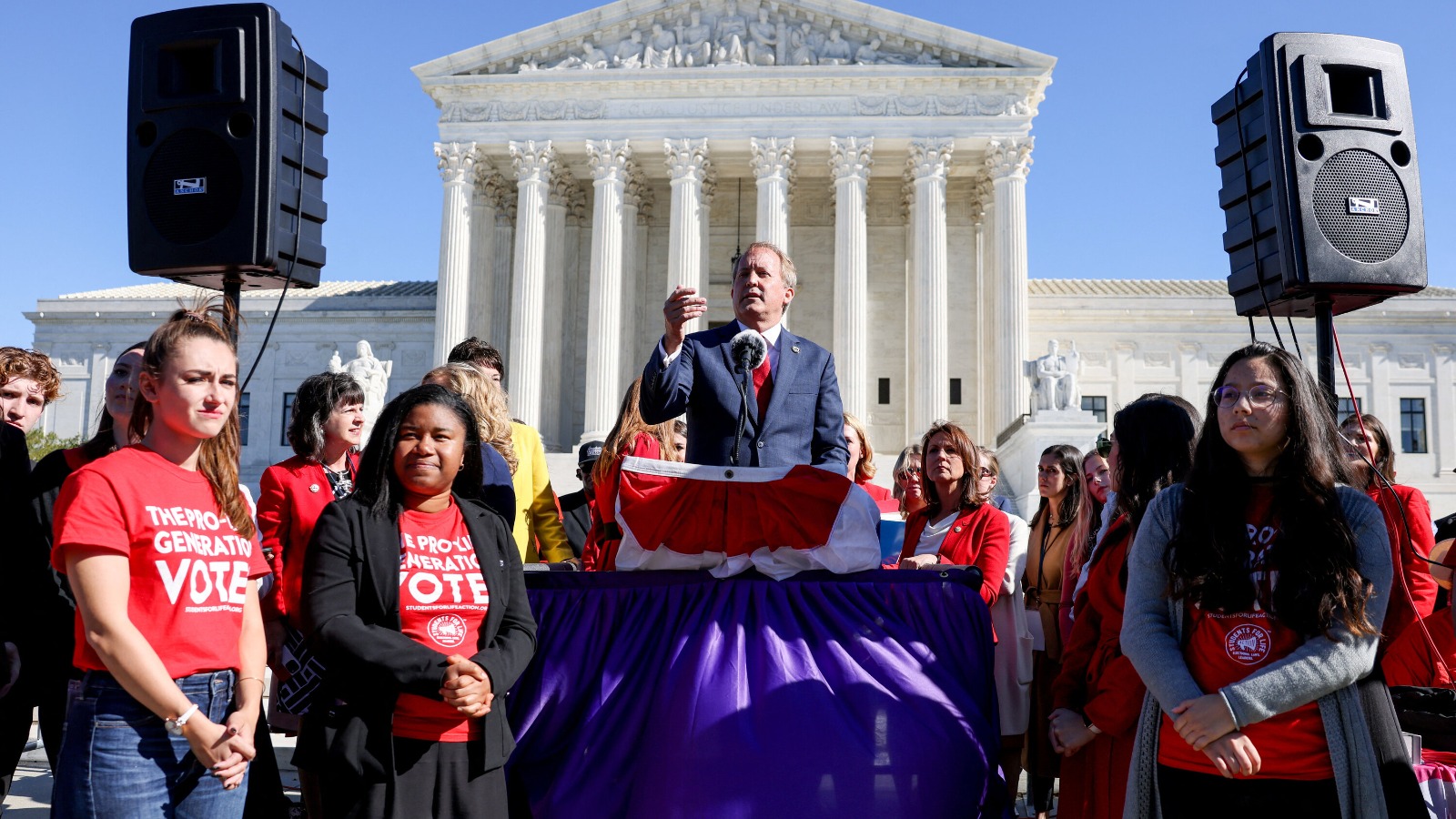
A possible game-changer in the national landscape of post-Roe legal fights, New York Officials block a $113,000 Texas Court Judgment against a New York doctor who prescribes abortion pills via telemedicine. The ruling also marks not just the increasing strength of state-level shield laws but the rising temperatures of inter-border disputes of reproductive rights.
The doctor at the center of the controversy, Dr. Margaret Carpenter, is a co-medical director and director of a clinic conceived by the Abortion Coalition for Telemedicine. Based north of New York City, Carpenter was fined last month by a Texas judge for allegedly breaking Texas law by prescribing Abortion medication to a woman near Dallas.
Carpenter did not appear in court, and the judgment was handed down by default.
But when Texas Attorney General Ken Paxton’s office sought to enforce the order in New York, things didn’t go as planned.
Acting Ulster County Clerk Taylor Bruck nonetheless refused to enter the judgment. The reason? New York’s telehealth shield law — a piece of legislation that’s quickly becoming a flashpoint in the nationwide battle over reproductive healthcare.
“In accordance with the New York State Shield Law, I have refused this filing and will refuse any similar filings,” Bruck stated.
That ruling already paved the way for what promises to be a very expensive legal fight, one that is likely to end up with the Supreme Court. At its core: Can states such as Texas impose their abortion bans in other states? And can states like New York refuse to cooperate?
New York is just one of at least eight states with strong telemedicine shield laws meant to prevent out-of-state abortion providers from being prosecuted or penalized by anti-abortion states. These laws were adopted as necessary after Roe v. Wade’s reversal as states got tougher on abortion access — even to out-of-state residents.
These shield laws flatly prevent local courts and officials from assisting domestic lawsuits against providers conforming to state laws. In New York’s instance, that means Dr. Carpenter is safe — for now.
Governor Kathy Hochul, an ardent supporter of reproductive rights, was quick to support the clerk’s actions.
“New York is grateful for his courage and common sense,” she said about Bruck.
Just last month, Hochul used the same shield law to block Louisiana Gov. Jeff Landry’s request to extradite Doctor Carpenter, who was also charged in Louisiana for prescribing abortion medication to a pregnant minor.
For doctors such as Carpenter, shield laws aren’t just fluff. They are a barrier to emerging legal risks. As more providers begin providing telehealth abortion services to women from abortion-restricted states, the legal stakes — and the likelihood of aggressive cross-border prosecution — have grown.
Carpenter, who could not comment on this case, is still a well-known player in the abortion telemedicine industry. Her work with the Abortion Coalition for Telemedicine seeks to fill the care gap for patients living in states where abortion is prohibited or heavily restricted. Her decision to skip the case in Texas looks deliberate – probably an attempt to avoid giving the semblance of credibility to a process she and others regard as an abuse of the legal system.
Texas Attorney General Ken Paxton has not spoken publicly about New York’s rejection, but lawyers expect a sharp and assertive counterattack.
Legal experts think this scenario can lead to a tremendous jurisdictional fight. At the heart of the issue is whether one state can control the healthcare policy of another by sanctioning providers through state lines—a largely unexplored area which could eventually go all the way to the Supreme Court.
At stake is the full faith and credit clause of the Constitution, which usually obliges states to respect another’s court rulings. But there are exceptions, and New York’s law is counting on one of them: that enforcing another state’s judgment would offend public policy.
It’s a bold gamble.
If Paxton’s office sues New York to force enforcement — a likely next step — the case could climb quickly through the federal courts. Advocates and legal analysts are already preparing for a constitutional battle with national consequences.
For now, shield laws are holding the line. But everyone involved knows that the line is thin and the stakes are only rising.
States like New York are betting on their autonomy and their progressive values. Texas is betting that legal pressure and strategic litigation can undermine abortion access — even beyond its borders.
In the middle are doctors like Margaret Carpenter. And behind them, patients who simply want care.
Whether shield laws are strong enough to withstand the storm will be a defining question in the next chapter of America’s reproductive rights fight.
Share this article: